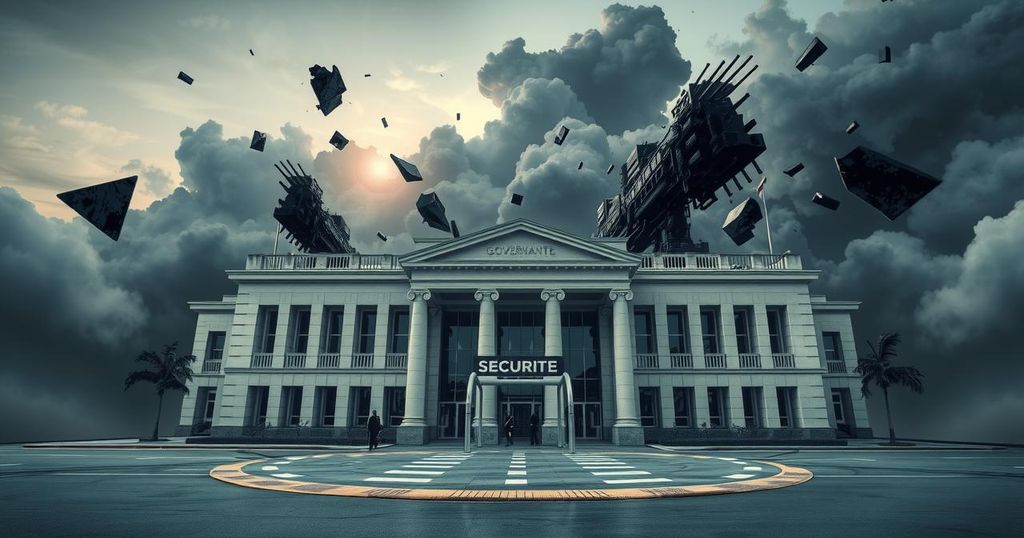Ecuador’s Escalating Violence: Security Challenges Ahead of Key Elections

Ecuador’s upcoming elections on February 9 are overshadowed by rising violence, with homicides surging by 430% in the past five years. President Daniel Noboa’s strict security measures have garnered political support, yet criticisms of their effectiveness persist. A comprehensive strategy is needed to dismantle criminal organizations and restore public safety while addressing the intertwining of crime and politics.
Ecuadorians are set to vote on February 9 for their president and national assembly members amidst a climate of escalating violence and insecurity. The nation has witnessed a staggering 430% increase in homicides and significant rises in femicides and youth violence over the past five years. This surge in crime undermines the Ecuadorian populace’s safety and well-being, while also impacting the United States through the empowerment of criminal organizations and increased migration flows.
Following a series of violent incidents in Guayaquil in early 2024, President Daniel Noboa declared an ‘internal armed conflict’ and designated 22 criminal entities as terrorist groups. To counteract this threat, he enforced a state of emergency, deploying military forces to restore order and regain control over the prisons. Subsequently, a referendum in April 2024 reinforced his stringent policies, resulting in a notable 16.5% decline in homicides, although his approach has faced criticism for its inadequacies.
The government’s focus on high-value targeting (HVT) led to the capture of various crime leaders, but left the core operational frameworks of these organizations largely intact. Similar to patterns observed in Mexico, mid-level leaders in Ecuador are now vying for dominance, resulting in further fragmentation of criminal entities. As violence spreads through new regions, the increasing number of rival factions complicates effective security responses.
Areas such as Durán have become key cocaine supply locations, with violent clashes between gangs like Los Chone Killers and the Latin Kings resulting in public chaos. Moreover, major criminal factions have expanded their operations beyond drug trafficking to include extortion, kidnapping, and illegal mining. The resulting ‘vacunas’—extortion fees—impose severe financial burdens on businesses and contribute to a troubling governance dynamic in affected communities.
Additionally, the acceleration of local criminal groups’ ambitions raises concerns regarding their relationship with transnational crime syndicates. Ecuadorian factions, no longer merely acting as regional proxies for Mexican drug cartels, are increasingly engaging in direct management of drug shipments to international markets, heightening competition and the risk of violent confrontations.
Moreover, the penetration of organized crime into local politics presents a severe threat to democratic institutions in Ecuador. The rise in assassinations of candidates challenging criminal power exemplifies the alarming trend of violence and corruption infiltrating governance. The Metastasis scandal underscores the deep-rooted connections between organized crime and government officials, amidst a justice system plagued by inefficiency and corruption.
Despite the challenges ahead, President Noboa’s strict policies have garnered him significant public support. Leading in polls with nearly 36.9% approval, his platform emphasizes maintaining the joint police-military security apparatus while utilizing technology for crime control. In contrast, his opponent, Luisa González, advocates for community-oriented criminal justice reform without military involvement.
To effectively counter violence and dismantle criminal organizations, a multifaceted security strategy is imperative, combining enforcement with efforts to bolster community resilience. Moving beyond high-value targeting to systematically disassemble the operational core of these groups will disrupt their capacity and rebuild trust in the judicial system. Additionally, strengthening interagency cooperation and addressing illegal mining, extortion, and other crimes will further undermine the influence of organized crime.
Ecuador is currently facing an unprecedented wave of violence that jeopardizes public safety and stability. Once a safe haven in the region, the country has seen rapid increases in serious crimes, leading to a national crisis. This upward trend in criminal activities is not only a domestic concern but reflects geopolitical dynamics that also affect the United States. As the electoral process unfolds, security challenges dominate political discourse, influencing voter priorities and government policy responses.
In conclusion, Ecuador’s elections are overshadowed by pressing security challenges due to escalating violence and organized crime. While the current government has implemented stringent measures that have yielded some reductions in crime, these strategies require a comprehensive approach that acknowledges the complexities of the criminal landscape. A focus on dismantling criminal networks, improving judicial integrity, and fostering community resilience is crucial for restoring public safety and governance in Ecuador.
Original Source: www.brookings.edu







